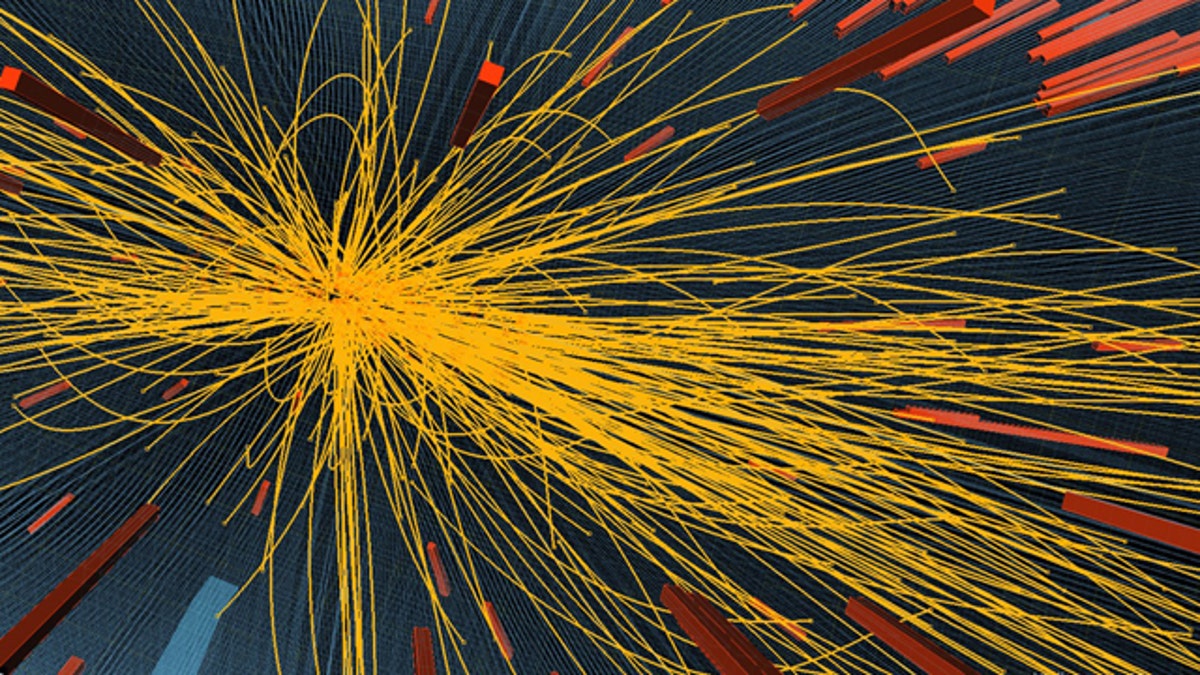
A proton-proton collision at the Large Hadron Collider particle accelerator at CERN laboratory in Geneva that produced more than 100 charged particles. (CERN)
GENEVA – Einstein can rest easy in his grave ... neutrinos do not travel faster than light after all.
Scientists at the European Organization for Nuclear Research (CERN) near Geneva confirmed Friday that colleagues from a rival team were a little hasty when they announced to collective gasps that their research had overturned one of the fundamental theories of the world's greatest ever physicist.
"The evidence is beginning to point toward the OPERA [rival team] result being an artifact of the measurement," CERN research director Sergio Bertolucci said Friday.
The OPERA team already admitted rather sheepishly last month that a malfunctioning cable may have been responsible for their astonishing claim that some particles may be able to travel faster than light speed.
[pullquote]
Last September, the scientists had said that ghostlike particles called neutrinos zapped from a lab in Geneva to one in Italy had seemingly made the trip in about 60 nanoseconds less than light speed.
Neutrinos are particles with almost no mass and no charge, and they can pass through ordinary matter unaffected. At any given moment, billions harmlessly stream through a person's body.
Einstein's theory of relativity incorporates his crucial idea that the speed of light -- about 186,000 miles (299,340 kilometers) a second -- is a barrier that realistically cannot be breached. If particles go faster than light, things become weird.
For example, it suggests that particles can theoretically travel backward in time. Not only is such an outcome contrary to nature's laws as currently understood, it would require a drastic rewriting of modern particle physics.








































